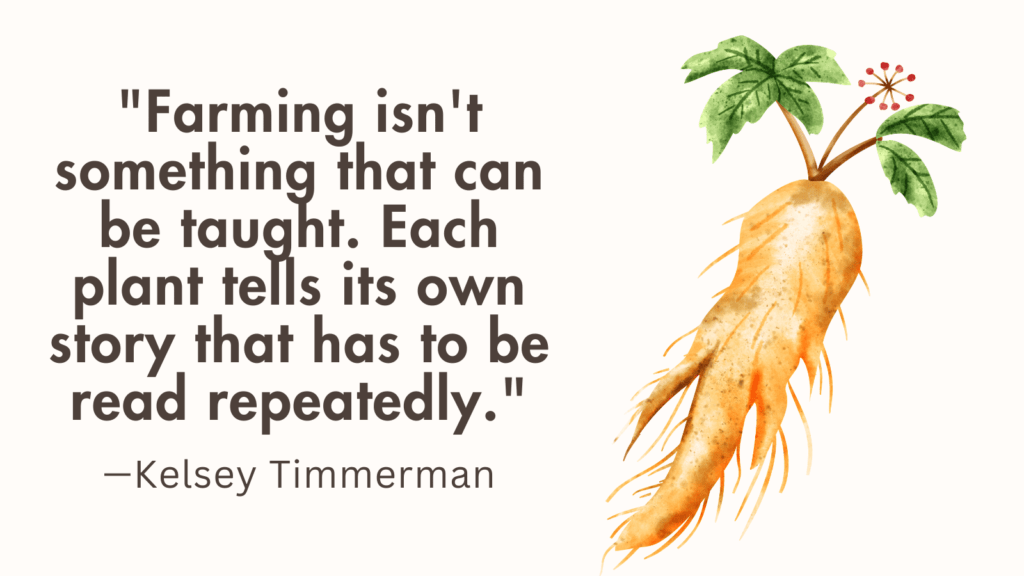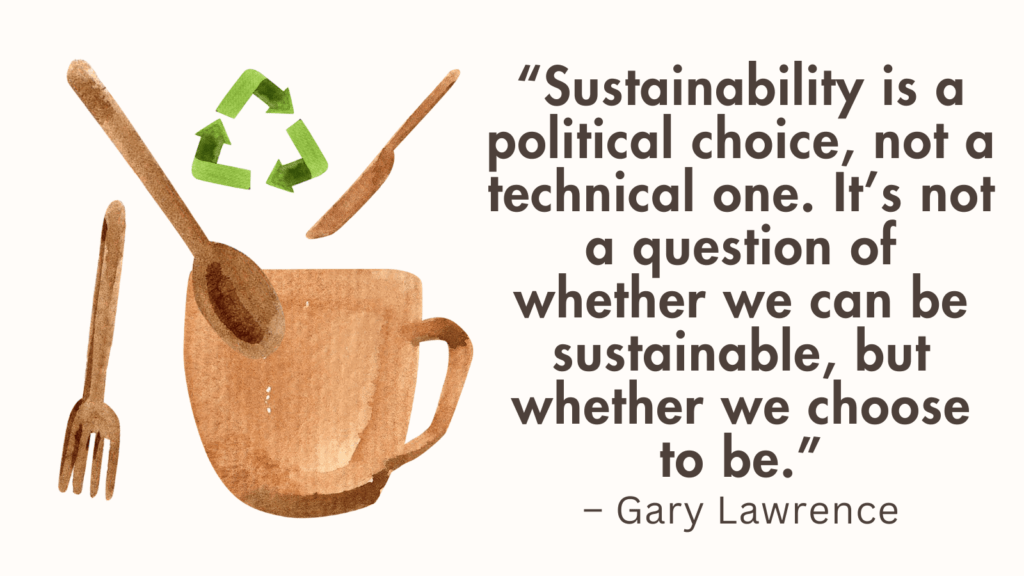In this post, you’re going to learn how to grow sustainable food.
What Is Sustainable Food?
Sustainable food refers to food that is produced, processed, and consumed in a manner that strives to minimize negative impacts on the environment, society, and public health, while also considering the economic viability of food production.
It emphasizes the importance of preserving natural resources, promoting biodiversity, and supporting local communities.
Here are some key principles of sustainable food:
1. Environmental Stewardship
Sustainable food production methods focus on minimizing environmental degradation.
This includes reducing greenhouse gas emissions, conserving water, protecting soil health, and minimizing the use of synthetic pesticides and fertilizers.
It also involves promoting biodiversity and preserving ecosystems.
2. Social Responsibility
Sustainable food systems prioritize fair working conditions, labor rights, and animal welfare.
They seek to eliminate exploitation and promote equity throughout the supply chain.
This can involve supporting farmers and workers through fair trade practices, ensuring fair wages, and providing safe and healthy working conditions.
Related: Does Sustainable Mean Eco Friendly?
3. Health and Nutrition
Sustainable food promotes the production and consumption of nutritious, wholesome, and safe food.
It emphasizes the importance of balanced diets, limiting processed foods, and reducing the consumption of unhealthy ingredients such as artificial additives and excessive sugars or sodium.
4. Local and Seasonal
Supporting local food systems is a cornerstone of sustainability.
Eating locally and seasonally reduces transportation emissions, supports local economies, and fosters closer connections between producers and consumers.
It also encourages the consumption of fresh, minimally processed foods.
5. Waste Reduction
Sustainable food systems aim to minimize food waste at all stages of production, distribution, and consumption.
This can be achieved through better storage, packaging, distribution networks, and education campaigns to raise awareness about mindful consumption.
Related: How To Eat Sustainably On A Budget?
How to Grow Sustainable Food?
Growing sustainable food involves practices that are good for the environment, conserve resources, and support local communities. Here are a few key steps to help you grow sustainable food:
1. Plan your garden
Take time to plan your garden layout and choose crops that are suitable for your region and climate.
This will minimize the need for excessive water, fertilizers, and pesticides.
2. Use organic methods
Avoid synthetic pesticides, herbicides, and fertilizers. Instead, focus on organic and natural methods to control pests, promote soil health, and nourish plants.
3. Compost
Start a compost pile using kitchen scraps, yard waste, and other organic materials.
Composting enriches the soil with nutrients and reduces the need for chemical fertilizers.
Related: How To Shop Sustainably On A Budget?
4. Conserve water
Install rain barrels to collect rainwater for watering your plants.
Additionally, consider drip irrigation systems or mulching techniques to reduce water evaporation.
5. Practice crop rotation
Rotate your crops each growing season to prevent the buildup of pests and diseases in the soil.
This helps maintain soil fertility and reduces the need for chemical interventions.
6. Encourage biodiversity
Plant a diverse range of crops and flowers to attract beneficial insects, birds, and other wildlife.
This helps maintain a balanced ecosystem and reduces the need for pesticides.
Related: Does Rice Need To Be Organic?
7. Support pollinators
Bees and other pollinators play a crucial role in plant reproduction.
By planting native flowers and avoiding harmful chemicals, you can create an inviting environment for these important creatures.
8. Save seeds
Consider saving seeds from your best-performing plants to replant them in future seasons.
This helps preserve genetic diversity and reduces reliance on commercial seed sources.
9. Share your harvest
Donate excess produce to local food banks or share it with neighbors.
Supporting your community and reducing food waste is an essential aspect of sustainable food production.
Related: Does Olive Oil Need To Be Organic?
10. Continuously educate yourself
Stay up-to-date with sustainable gardening practices, attend workshops or webinars, and connect with local gardening groups.
The more you learn, the better equipped you’ll be to make sustainable choices.
Remember, growing sustainable food is not just about the practices you follow, but also about the mindset of caring for the environment and promoting a healthy ecosystem.
FAQ
Why is sustainable food important?
Sustainable food plays a crucial role in mitigating climate change, protecting natural resources, preserving biodiversity, promoting healthy diets, supporting local economies, and ensuring food security for future generations.
It addresses the environmental, social, and economic challenges associated with conventional food production methods.
Related: Do Potatoes Need To Be Organic?
How can individuals support sustainable food?
Individuals can support sustainable food by choosing locally grown and seasonal produce, reducing food waste, opting for organic or regenerative farming practices, supporting small-scale farmers and local food systems, and making conscious choices about the types of food they consume.
Is organic food considered sustainable?
Organic food is often considered more sustainable than conventional food due to its strict regulations on pesticide use, GMO avoidance, and soil management practices.
However, sustainability involves more than just organic certification.
It encompasses various aspects such as biodiversity conservation, water and energy efficiency, fair labor practices, and minimizing food miles.
Related: Do Dates Need To Be Organic?
Can sustainable food be affordable?
Sustainable food can be affordable, especially when considering the long-term benefits it provides to both individuals and the environment.
Supporting local farmers and growers, buying in-season produce, reducing food waste, and cooking meals from scratch are all ways to make sustainable choices within a reasonable budget.

Garden Cart
*As an Amazon Associate I earn from qualifying purchases, at zero cost to you, if you click through the link and finalize a purchase.





